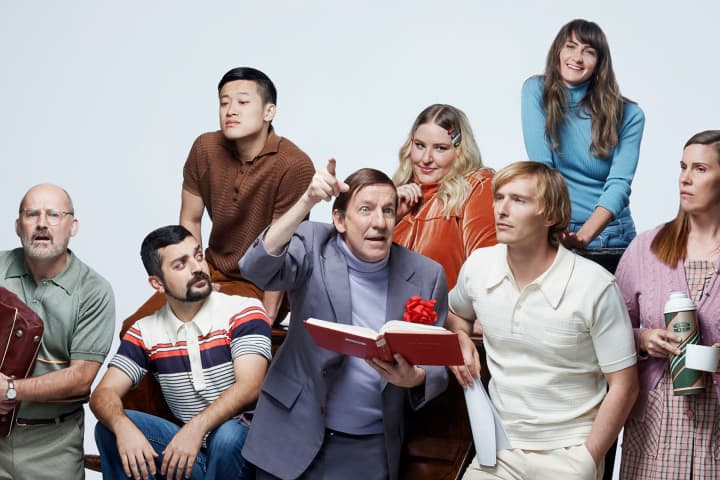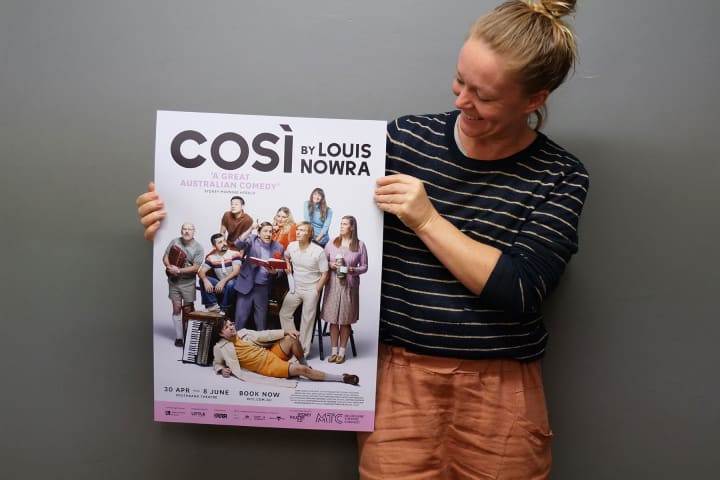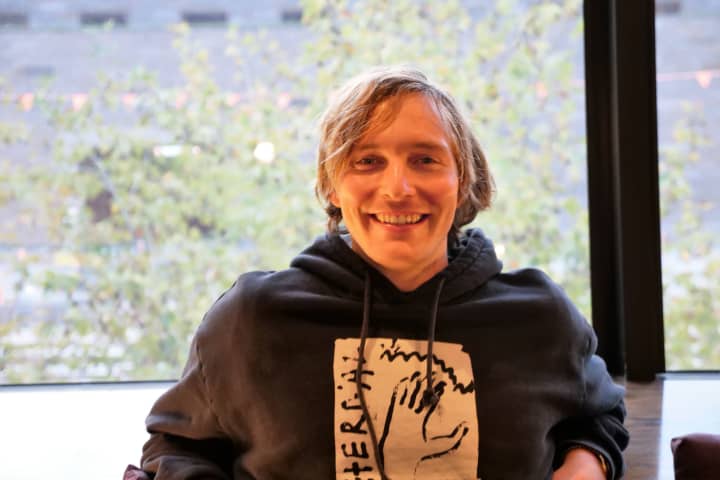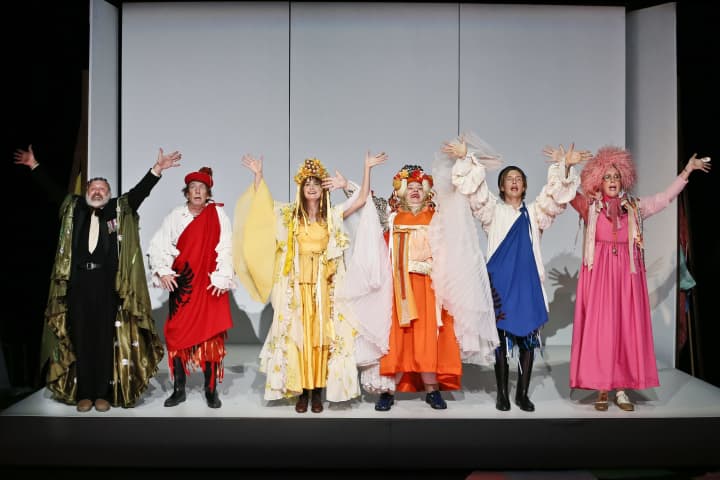What do you think the driving force behind your character, Ruth, is?
Ruth, I believe, is a fiercely intelligent character who sees the world in a very unique way. She is driven to clarify and seek consistency in the way both she and others interpret events around them. She deals in facts and absolutes, as she feels great anxiety when sensing chaos and uncertainty around her. Particularly during the first half of the play, Ruth is driven to create order, although the fact that she has volunteered to be part of the production suggests that she is seeking ways to extend the realms of her own comfort. It’s a wonderful journey to go on with her.
How do you inhabit Ruth? Does she have specific gestures, movements, facial expressions or habits?
Our director Sarah [Goodes] and I spoke about Ruth’s need to cling to facts for safety — like rungs on a ladder — and as such she has ended up moving through space from point A to point B with great directness, rarely with a moment to meander … a little like a line moving through a dot to dot painting — all angles and no deviation — although this softens throughout the course of the play.
How does Ruth grow throughout the play?
Throughout the course of the play, Ruth comes to embrace the chaos and free-fall that accompanies the journey of putting on a play. She comes to trust herself and others more — something beautifully symbolised by the moment she lets herself fall and be caught by Henry when her character “faints” in the performance. In the playing of Dorabella she loses herself for a moment, and in this letting go she finds something new and joyous.
Can you describe a moment from rehearsal that helped you develop your character?
I found the process of gathering props and costume elements particularly helpful in developing Ruth. The sturdiness of her bag, the organisation of pills and stationery items, the ‘preparedness’ of her thermos, the sharpness of a poised pencil … all these things helped me to flesh out her inner workings and characteristics. Putting on her glasses for the first time was a huge help too — they gave this wonderful sense of her reaching into the world to seek meaning but at the same time being set apart from it, like someone standing behind a window watching the world unfold on the other side, trying to make sense of something she’s not quite able to feel a part of.
How important is improvisation in rehearsal for you, in regards to interpreting the script and your character?
Early in rehearsals we did some physical and vocal warm up exercises in character, with either Lewis or Roy leading the session. Apart from being entertaining watching the chaos unfold, it was a great way to start inhabiting Ruth’s mindset. These sorts of improvisations helped to highlight the similarities and differences between our selves and our characters, and the voracity with which these characters have been forced to defend themselves against attack and ridicule.
Do you have a favourite line from the script?
My favourite line belongs to Roy: ‘This is where I belong. In the theatre.’ Because Rob Menzies says it, and I’ve never quite known another actor for whom this line could be more true.
Published on 30 April 2019





